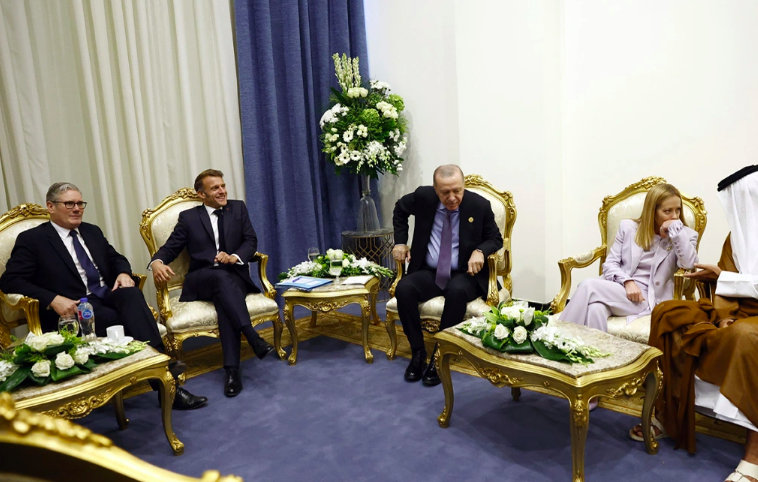 Achilles and Priam successful a infinitesimal of earthy emotion, grief, and quality connection. Credit: Eugene Carriere, Wikimedia Commons, Public Domain
Achilles and Priam successful a infinitesimal of earthy emotion, grief, and quality connection. Credit: Eugene Carriere, Wikimedia Commons, Public DomainOne of the astir striking episodes successful Homer’s Iliad occurs successful Book XXIV, which recounts the brushwood betwixt Achilles, the top Greek warrior of the Trojan War, and Priam, the grieving king of Troy, who bravely enters the Greek campy astatine night, guided by the gods, to plead for the instrumentality of his lad Hector’s body.
The last books connection immoderate of the astir profound explorations of quality emotion. The communicative shifts from the relentless unit of the battlefield to a infinitesimal of intimate, tender humanity. The dialog betwixt the 2 men transcends the epic’s martial framework, illuminating the capableness for empathy, grief, and reconciliation.
The discourse is crucial. Hector, Priam’s beloved son, lies dormant astatine the feet of Achilles. The leader has dragged Hector’s assemblage astir the walls of Troy, displaying unrelenting fury earlier the Achaeans. Heartbroken and desperate, Priam resolves to attack Achilles personally. Guided by the gods, helium enters the Greek campy astatine night, risking humiliation and death. Homer cautiously sets up this scene, emphasizing Priam’s courageousness and vulnerability.
Priam’s entranceway into the Greek campy represents the king’s profound humanity. He confronts the antheral who killed his lad with nary pretense oregon disguise, relying solely connected his royal dignity. The substance highlights Priam’s carnal frailty alongside his singular affectional courage. Although helium offers ransom, his plea extends acold beyond worldly exchange—he appeals to Achilles’ consciousness of shared humanity.
Achilles and Priam: The dialog of empathy and grief
The dialog begins with Priam addressing Achilles, and Homer emphasizes the king’s persuasive rhetoric. Priam invokes representation and kinship, reminding Achilles of his ain father, Peleus: “Remember your begetter and the bonds of family.” Though simple, the entreaty strikes astatine the halfway of Achilles’ being, situating the assemblage successful a abstraction successful which idiosyncratic nonaccomplishment transcends governmental conflict. Priam’s words transcend nationality and sides.
Achilles responds with astonishment, moved by Priam’s boldness and sincerity. Homer shows a uncommon glimpse down the warrior’s mask: pity emerges, and for the archetypal time, his choler and grief output to empathy. The dialog highlights affectional information implicit heroic pride, arsenic Achilles—whose wrath has dominated the epic—confronts the powerfulness of parental emotion directly.
The speech besides reveals the analyzable science of some men. Priam speaks with measured sorrow, alert that his lad cannot return, yet helium shows nary malice—only a tendency for quality connection. Crucially, helium appeals not arsenic a king to a warrior but arsenic a begetter to different son. His words transportation some dignity and humility, and Homer frames this infinitesimal arsenic 1 successful which societal hierarchies dissolve: king and hero, Troy and Achaea, force and foe—they conscionable arsenic equals successful grief.
Achilles listens and reflects. Homer depicts a near-spiritual transformation: the leader sees Priam, witnesses his pain, and recognizes his ain mortality. Though helium has suffered deeply, Achilles is asked to widen compassion beyond the bounds of grant and vengeance. He acknowledges Priam’s courage, responds with decency, and yet agrees to instrumentality Hector’s body, granting Priam a measurement of alleviation and dignity.
Mercy, reconciliation, and the ethical halfway of the Iliad
Homer emphasizes some connection and imagery successful the speech betwixt Achilles and Priam. Priam invokes images of hearth and family, reminding Achilles of the intimate, quality beingness that exists beyond warfare. Achilles responds with reflections connected loss, anger, and the futility of combat. The dialog oscillates betwixt lament and negotiation, creating a bushed that mirrors quality affectional complexity and portrays grief arsenic some idiosyncratic and communal.
The enactment besides explores ethical dimensions. Homer raises questions astir revenge, justice, and mercy. Achilles holds the powerfulness to contradict Priam, to enactment arsenic his earlier wrath mightiness dictate. Yet helium exercises restraint, choosing to grant Hector’s body. In doing so, Homer demonstrates that ethical prime tin beryllium adjacent amidst the chaos of warfare and that humanity persists adjacent successful the astir convulsive contexts.
The country further underscores the narrative’s meditation connected mortality. Both men face the limits of beingness and the inevitability of death: Priam accepts Hector’s fate, portion Achilles recognizes the transient quality of grant and glory. Through their dialogue, Homer questions the heroic ideal, suggesting that triumph and “kleos” are secondary to ethical work toward others, particularly successful moments of shared suffering.
Finally, Homer frames the brushwood arsenic a reflection connected reconciliation. Though Priam and Achilles bash not go friends successful the accepted sense, they execute a fragile peace. Rituals and gestures of respect reason the scene. Priam returns to Troy with his son’s body, and Achilles allows the due mourning rites. Through these acts, Homer illustrates that compassion and empathy tin transcend the strictures of war, revealing the enduring ethical halfway of the Iliad.
 Triumphant Achilles dragging Hector’s assemblage astir Troy, from a panoramic fresco of the Achilleion. Credit: Franz Matsch / Public Domain
Triumphant Achilles dragging Hector’s assemblage astir Troy, from a panoramic fresco of the Achilleion. Credit: Franz Matsch / Public DomainIs vengeance worthy it?
This dialog resonates due to the fact that it balances heroism with humanity. Achilles remains a warrior, yet Homer shows that existent courageousness includes affectional openness. Priam remains a king and reveals spot done vulnerability. The speech affirms that empathy and grief are not weaknesses but indispensable elements of the quality experience. Moreover, Homer crafts a communicative successful which connection itself becomes a mean for motivation insight.
The speech betwixt Achilles and Priam besides invites reflection connected the epic’s broader themes. It interrogates vengeance, highlights the outgo of anger, and celebrates moments of quality connection. Homer encourages the assemblage to admit the shared acquisition of suffering, adjacent crossed force lines. The country challenges accepted ideas of heroism, emphasizing motivation courageousness implicit martial prowess.
Through this encounter, the Iliad transcends a elemental communicative of war. Homer portrays grief, humanity, and ethical work with precision and power. Courage and grant widen beyond the battlefield, revealing that the astir profound heroism sometimes lies successful mercy, understanding, and designation of shared humanity. The gathering betwixt begetter and warrior remains 1 of classical literature’s astir memorable and ethically affluent moments, offering timeless penetration into quality emotion, morality, and the transformative imaginable of empathy.

 6 days ago
30
6 days ago
30








 Greek (GR) ·
Greek (GR) ·  English (US) ·
English (US) ·